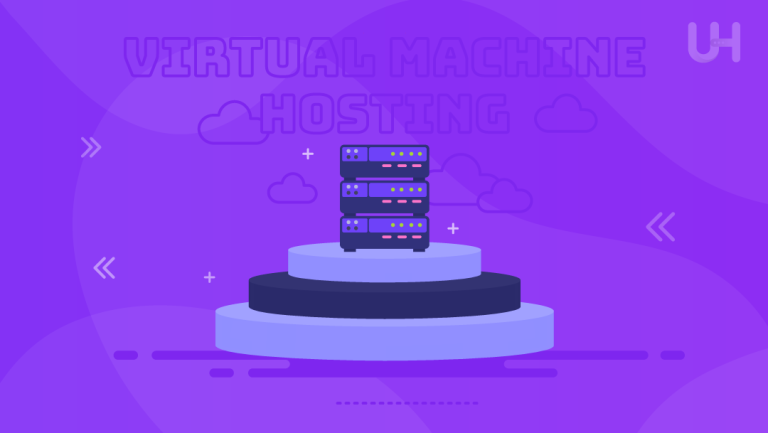Overall, businesses and people are very curious about improving performance, security, and control over their hosting solutions. That’s where the bare metal server comes in as a preferred option for high-demand workloads and is widely referred to as a gold standard. Whether running complex applications, managing loads of data, or just seeking more control, it is important to know what a bare metal server is and how it works.
In this blog, we will examine a bare metal server and its benefits. We will also discuss why it may be the right solution for you.
What Is Bare Metal Server?
A bare metal server is a physical, single-tenant server dedicated to one user or organization without any kind of sharing. In contrast to virtual servers, where multiple users share resources more, bare metal servers give full access to the hardware to ensure full control and customization.
These servers run no layer of virtualization; instead, they guarantee direct access to CPU, RAM and storage. Thus, they are known for performance, reliability, and security. Bare metal servers or bare metal hypervisors will become ideal solutions for any organization in need of highly processed applications, datasets to work on, or special configurations aimed at meeting the requirements of certain applications.
Physical Hardware
- Dedicated Components: The resources the bare metal server needs are fulfilled independently, with independent physical component resources like CPU, RAM, storage, and network interfaces. These resources are not shared with any users, improving performance and reliability.
- Configurable Hardware: Users can select preferred hardware settings, including processor type, amount of memory, and storage, thus obtaining optimized performance to workload requirements.
- High-End Specifications: Bare metal servers come with high-performance components, including multi-core processors, SSDs, and high-speed networks that guarantee maximum output performance for resource-intensive tasks.
- No Virtualization Overhead: Because there isn’t a layer of virtualization, the user has direct access to the hardware, enabling the utilization of full resources without latency and performance degradation.
Dedicated Resources
Bare metal provides exclusivity to all hardware resources that no other user can share. It does not interfere with the performance of your server. This means the server’s resources, such as the CPU, memory, storage, and network capacity, are totally yours only. In contrast, in a virtualized environment, such resources are shared among many users.
This results from having all the given resources to oneself, enhancing performance in general, and getting rid of “noisy neighbor” problems whereby the activities of other users impact the efficient running of your server. The environment will be fully utilized for resource-intensive applications, such as large databases, gaming platforms, or high-traffic websites, where dependable performance and reliability mean the difference between success and failure.
Single-Tenant Environment

In a bare metal server, the setting is single-tenanted, and the server utilizes the entirety of the physical infrastructure that houses it for one organization or individual. Among others, this comes with a number of advantages, including improved data privacy in which no other users share access to hardware, reducing the possibility of unauthorized access or data breaches.
In the single-tenant environment, the server’s configuration can be fully customized and controlled to suit particular needs. Since no resource is shared, performance is predictable and steady. This makes bare metal servers ideal for businesses with mission-critical or high-performance workloads.
Customization Flexibility
Hardware Customization
Bare metal servers are available with a wide range of hardware customizations. Based on workload needs, servers with certain processor types, memory sizes, storage types, and network interfaces can be chosen. This helps an organization configure the server for applications that require high performance or specialized configuration to ensure maximum efficiency. Therefore, choosing appropriate hardware components required for higher-than-normal demands allows businesses to optimize their server needs for various uses, such as big data processing, machine learning, and high-traffic websites.
Software Control
In addition to hardware, bare metal servers allow users to control full software environments. Users can install any operating system, software, or application without restrictions on shared or virtualized hosting environments. For those seeking a virtualized option with similar flexibility, consider exploring VPS Hosting, which also offers customizable software environments with dedicated resources.
Maximize Performance with Bare Metal Servers!
Choose a bare metal dedicated hosting server from UltaHost for hassle-free performance and top-tier security. Enjoy the power of bare metal with expert management, ensuring your server runs smoothly while you focus on your business.
Performance Advantages
Bare metal servers are known for high performance because there is no virtualization layer. Without any virtualization overhead, users get direct access to all server hardware resources and, therefore, get faster processing with reduced latency. Thus, they will be useful for resource-intensive applications, ranging from huge databases to high-loaded web applications or complex computational jobs, including AI, machine learning, and data analysis. Since no resource sharing occurs, there’s no possibility of performance degradation based on the activities of other users. It guarantees predictable performance along with heavy workloads or peak traffic conditions.
Security Benefits
Bare-metal servers are more secure because they are not shared with any other customers. Their single-tenanted nature reduces security breaches or vulnerabilities found in multi-tenanted environments. Full control of the server allows users to take their own measures for security, such as web application firewalls (WAFs), encryption, intrusion detection systems, and many features desired for such special needs.
Bare metal servers are also useful for compliance. Many of the most strict industry standards, such as HIPAA or PCI DSS, can be followed easily since sensitive data remains at rest on the server. This makes bare metal servers ideal for businesses dealing with highly confidential data or running critical applications.
No Virtualization Layer
- Direct Hardware Access: Bare-metal servers provide direct access to the physical hardware. Unlike in virtualized environments where the hypervisor manages multiple VMs, resources are used efficiently in processing and faster processes.
- Less Latency: Without virtualization, there is less latency, hence quicker responses. Bare metal servers are apt for performance-sensitive end tasks or real-time applications.
- Better Resource Utilization: Resources do not have to be split among various users or virtual machines. This way, all of the CPU, memory, and storage is completely at the discretion of a single tenant.
- Full Control: Unlike a virtualization platform, users have full control over the server’s configuration and management.
Use Case Scenarios
Bare Metal servers are best suited for organizations that demand high performance, security, and control. They find their usage effectively in large databases where high and continuous performance with high-speed access to data is imperative. These servers can also render resource-intensive applications like machine learning, AI, and big data analytics since they demand high processing power.
Bare metal servers are also right for gaming platforms, where low latency and uninterrupted services mean everything. Additionally, businesses with high-traffic websites or online stores, such as those utilizing E-commerce hosting, can greatly benefit from the performance and reliability offered by bare metal servers.
Scalability Options
- Vertical Scaling: Bare metal servers support vertical scaling through hardware upgrades, such as increasing the number of CPU cores, RAM, or storage to meet growing performance demands without necessarily upgrading to another server.
- Horizontal Scaling: Users can add more bare metal servers to the infrastructure for applications that need more distributed resources. This will provide full capacity and workload distribution on more than one server.
- Load Balancing: If the application is assigned multiple bare metal servers, load balancers can distribute incoming traffic. It uniformly does so without creating hotspots where the overall system performance may degrade due to server demand.
- Hybrid Cloud Integration: Bare metal servers can be integrated with cloud environments for scalable, on-demand scaling. All of this is done while maintaining high-performance and dedicated resources.
Conclusion
Bare-metal servers provide the highest performance, control, and security levels to businesses with high workload demands or specialized needs. The architecture of such servers involves dedicated hardware, whereby resource sharing is eliminated, assuring continued performance. Full hardware-software customization in these servers lets an organization optimize for certain applications.
A scalable set of options allows a business to scale up without giving up performance. Whether running data-intensive applications, managing extensive databases through data centers, or handling sensitive information, the bare metal server serves as a powerful and reliable solution.
For a scalable and customizable solution, consider UltaHost’s VM Hosting. It combines virtualization’s flexibility with dedicated resources, offering the control and performance needed for demanding applications.
FAQ
What is a bare metal server?
A bare metal server is a single-tenant, physical server that supplies dedicated hardware resources sans virtualization.
How does a VPS differ from a bare metal server?
In contrast to bare metal servers, while it shares resources, a VPS gives its user exclusive access to all hardware for one user.
Who should use a bare metal server?
Businesses that require very high performance, control, and security are usually used for big databases or resource-intensive applications.
What are the performance benefits of bare metal servers?
Bare metal servers ensure ultra-fast processing, low latency, and full resource dedication for high performance.
Are bare-metal servers more secure than shared hosting?
Because they operate in a single-tenant environment, no sharing of resources occurs, minimizing security risks.
Can a bare metal server be customized?
Of course, you can have complete control over hardware and software configuration to fit your needs.
How scalable are bare metal servers?
Bare metal servers support vertical and horizontal scaling, enabling users to upgrade hardware or add more servers when needed.














